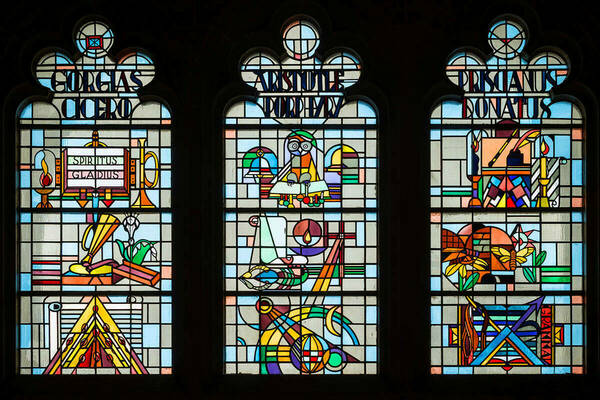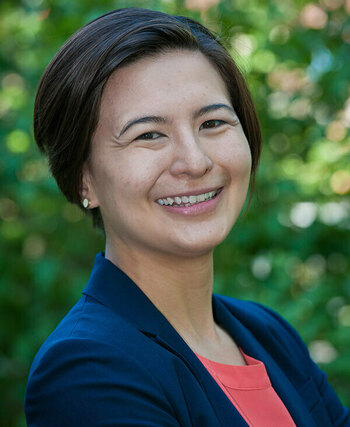
Three faculty members in the College of Arts & Letters, including one who holds a concurrent appointment in the Department of East Asian Languages and Cultures, have won National Endowment for the Humanities fellowships, extending the University of Notre Dame’s record success with the federal agency committed to supporting original research and scholarship.
Sara Bernstein, an associate professor in the Department of Philosophy; Tarryn Chun, an assistant professor in the Department of Film, Television, and Theatre; and Katie Jarvis, the Carl E. Koch Associate Professor in the Department of History, are among the class of fellows announced by the NEH this week.
Since 2000, Arts & Letters faculty have received more NEH fellowships than any other private university in the country. NEH fellowships are competitive awards granted to scholars pursuing projects that embody exceptional research, rigorous analysis, and clear writing.
“We are thrilled and proud that these members of our faculty are continuing Notre Dame’s unprecedented success in earning NEH fellowships and grants,” said Sarah A. Mustillo, the I.A. O’Shaughnessy Dean of the College of Arts & Letters. “These awards recognize the outstanding research that is happening here across a range of disciplines, the creativity and originality of our scholars, as well as the excellent support provided by the Institute for Scholarship in the Liberal Arts throughout the application process.”
Notre Dame also received a significant grant for a digital scholarship project led by Robert Goulding, director of the Reilly Center for Science, Technology, and Values, in partnership with the Navari Family Center for Digital Scholarship and director Scott Weingart as well as collaborators at the University of Oxford’s Bodleian Library.
“These awards recognize the outstanding research that is happening here across a range of disciplines, the creativity and originality of our scholars, as well as the excellent support provided by the Institute for Scholarship in the Liberal Arts throughout the application process.”
Artistic spectacle and technological excess

Chun, who studies Chinese theatre and visual culture, will investigate connections between aesthetics and technology for her project, “Spectacle and Excess in Global Chinese Performance.”
Since the opening ceremony of the 2008 Beijing Summer Olympics, large-scale multimedia theatre has become a prominent performance genre in China and throughout the Chinese-speaking world.
The genre, which appeals to popular tastes and is often treated dismissively by critics and scholars, includes state-sponsored propaganda theatre, shows at popular tourist destinations, and commercial theatre adaptations of science fiction and internet novels. Chun’s research examines how all of these forms capitalize on the potentials of new media and technology in performance for artistic, commercial, social, and political ends.
Chun’s interest in the topic grew from her fascination with how theatre is made from a technical perspective, and from her first book project, which takes a more historical approach to the complex relationship between technology, theatre, and politics in China.
“This research is particularly relevant as theatre absorbs lessons learned from being online during the pandemic and looks toward reinventing itself for post-pandemic stages and audiences,” said Chun, who holds a concurrent appointment in the Department of East Asian Languages and Cultures and is a faculty fellow at the Liu Institute for Asia and Asian Studies. “We’re at a moment when theatre artists worldwide are grappling with how to sustain live performance in a digital world and under ongoing pandemic conditions.”
Provided travel to China is possible, she’ll attend performances, interview theatre artists, and gather materials such as programs, set design drawings, production photographs and recordings, as well as work on drafting a book manuscript.
Originally published by at al.nd.edu on January 13, 2022.